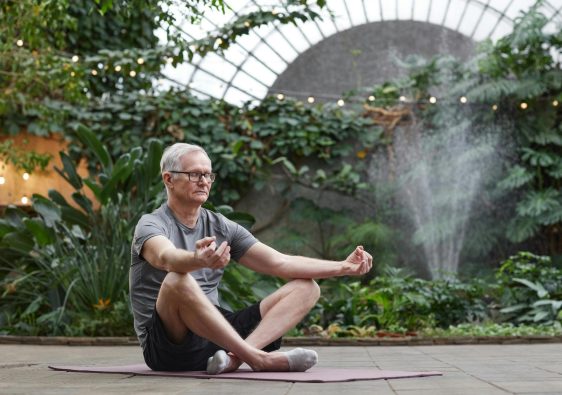Stress is an inevitable part of modern life, but an effective exercise routine can be a powerful tool for managing it. Physical activity not only boosts physical health but also significantly improves mental well-being. This post will dig into how to create an effective exercise routine for stress management, highlighting key exercises and strategies to maximize their benefits.
The Science Behind Exercise and Stress Management
Exercise plays a crucial role in reducing stress by stimulating the production of endorphins, the body’s natural mood elevators. It also helps regulate cortisol, a primary stress hormone. According to a study published in the Journal of Health Psychology, regular exercise can substantially lower stress levels and improve overall mood. This scientific connection underscores the importance of incorporating exercise into daily routines to combat stress effectively. For a deeper understanding, read Exercise for Stress Relief: The Scientific Connection.
Identifying the Best Exercises for Stress Relief
- Aerobic Exercise
- Running: Running is a high-intensity workout that can significantly boost endorphin levels, enhancing mood and reducing stress.
- Cycling: Whether on a stationary bike or outdoors, cycling offers a great cardiovascular workout that is excellent for stress relief.
- Swimming: Swimming provides a full-body workout that is gentle on the joints, making it a fantastic option for stress management.
- Strength Training
- Weight Lifting: Engaging in weight lifting helps build physical strength and mental resilience, reducing anxiety and stress.
- Resistance Bands: Resistance band exercises are low-impact yet effective for muscle strengthening and stress alleviation.
- Mind-Body Practices
- Yoga: Yoga combines physical postures with mindfulness, promoting relaxation, flexibility, and stress reduction.
- Tai Chi: This practice involves slow, deliberate movements and deep breathing, enhancing mental clarity and reducing stress.
For more details on these exercises, visit Types of Exercise Best for Releasing Stress.
Steps to Create an Effective Exercise Routine
- Set Clear Goals
- Define what you aim to achieve with your exercise routine, whether it’s improving mood, enhancing physical fitness, or managing stress.
- Choose Enjoyable Activities
- Select exercises you enjoy to ensure consistency. Whether it’s running, yoga, or swimming, enjoyment is key to maintaining a routine.
- Start Slowly
- Begin with manageable sessions and gradually increase the duration and intensity. This approach helps prevent burnout and injury.
- Schedule Regular Sessions
- Consistency is crucial. Aim to exercise at least three to five times a week, incorporating both aerobic and strength training activities.
- Mix It Up
- Variety in your exercise routine can prevent boredom and target different muscle groups, enhancing overall fitness and stress relief.
- Stay Motivated
- Keep track of your progress and celebrate milestones. Consider joining a group class or finding a workout buddy for additional motivation.
For further guidance, check out Creating an Effective Exercise Routine for Stress Management.
Enhancing Your Routine with Emotional Support Supplements
In addition to a well-structured exercise routine, incorporating Emotional Support Supplements can further enhance stress management. Supplements like adaptogens, amino acids, and vitamins help balance stress hormones and support overall mental health. Adaptogens such as ashwagandha and rhodiola rosea are particularly effective in reducing cortisol levels and enhancing resilience to stress.
Long-Term Stress Management Strategies
Addressing the long-term effects of stress requires a comprehensive approach. Consider this three-step strategy:
- Learn the Science of Stress: Understanding how stress affects your body and mind can empower you to take proactive steps. For a comprehensive guide, visit Understanding the Science of Stress: A Comprehensive Guide.
- Emotional Support Supplements: Incorporate supplements to balance stress hormones and support mental health. Explore Emotional Support Supplements.
- Holistic Wellness Tools: Implement mindfulness, meditation, and healthy lifestyle practices to manage stress effectively over the long term.
Creating an effective exercise routine tailored to your needs can transform your approach to stress management. By combining physical activity with Emotional Support Supplements, you can achieve a balanced and healthy lifestyle, improving both your physical and mental well-being.



